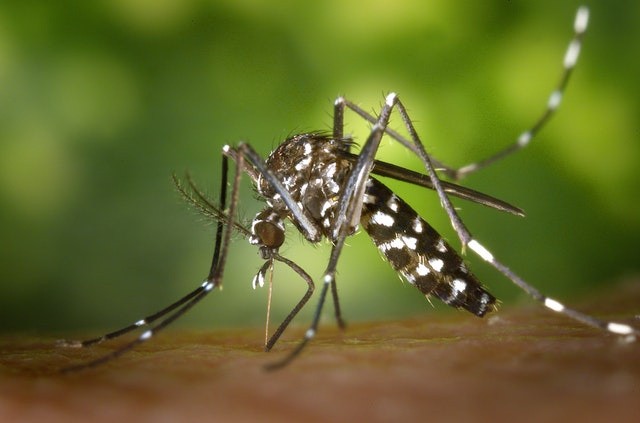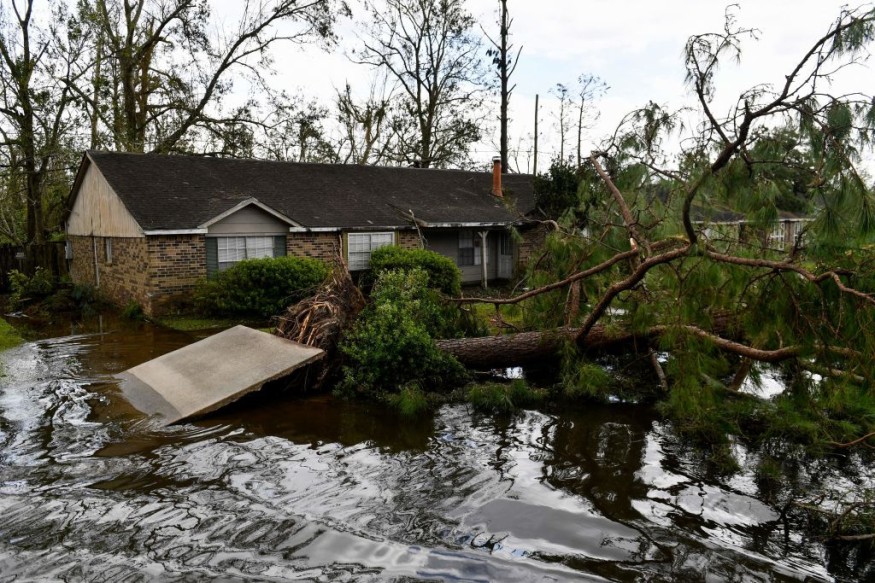Experts have warned of the emergence of "floodwater mosquitoes" as millions of people struggle to recuperate after Tropical Storm Ida ripped through the Northeast last week, triggering unprecedented flooding.

Most mosquitoes in cities, such as the common house mosquito, come from a type that breeds in standing water such as puddles, buckets, birdbaths, tarps, and abandoned or neglected swimming pools. Floodwater mosquitoes, such as the Aedes vexans (Inland Floodwater Mosquito), lay eggs in dry areas with a high risk of flooding.
After Hurricane Ida ripped through the mid-Atlantic and Northeast last week, significant flooding occurred throughout a large section of the region, including in and around the New York City and Philadelphia metro regions.
"It's critical to recognize that various mosquito species have different life cycles," says the author "The National Pest Management Association (NPMAchief ) 's entomologist and vice president of technical and regulatory affairs, Dr. Jim Fredericks, remarked. "Furthermore, the ability of various mosquito species to spread illness varies."
Related Article : Worsening Climate Crisis May Put 8 Billion People at Risks of Mosquito-Borne Diseases
Floodwater Mosquitoes Breeding

Floodwater mosquitoes lay eggs in wet settings or slightly above the natural waterline, according to Fredericks. The eggs must then be drenched with water after a brief period of drying. However, eggs can be dormant during dry spells yet still viable for years, waiting for the water level to increase. "Those eggs will hatch when the rains arrive and those depressions or seasonal pools flood, so they're most often found and experienced just after heavy rains," Fredericks added.
Mosquitoes that breed in floodwaters are most common along the borders of damp pastures, irrigation furrows, swales, ditches, and other similar environments. Rain causes groundwater to rise, resulting in puddles, tiny ponds, and flooded meadows and fields. A freshly born mosquito may develop into an adult in less than a week during the spring and summer if the weather is suitable. Furthermore, larvae can hatch in large numbers.
Temperature Changes
Temperature, in addition to rainfall, has a significant influence on a mosquito's life cycle, according to Fredericks. Mosquitoes will multiply more quickly as the temperature rises. Conversely, the longer mosquito larvae take to mature into adults, the lower the temperature.
"You're going to have many mosquitoes if it's warm and there's much rain," Fredericks said, "because the populations will be able to flip over more fast." Adult mosquitoes will arrive sooner, and those adult mosquitoes will continue to lay eggs." Although mosquitoes in floodwaters are renowned for biting and can be irritating, researchers do not believe they are carriers for illnesses like Zika or West Nile."
"All mosquitos require water to complete their life cycles, which is why humans may notice an increase in mosquito activity following a heavy rain event such as a tropical storm." "Typically, following major flooding occurrences like we're experiencing right now with all this rain and the storm and tropical depression, you'll have numerous regions, such as wooded areas, that just become inundated," Fredericks explained. "That's going to be a perfect breeding habitat for Aedes vexans, one of the most significant floodwater mosquitoes."
Pestering People
Although it is not a disease vector, Aedes vexans is a vicious biter who bites at all hours of the day and night. According to Fredericks, floodwater mosquito populations would peak within one week in regions with unprecedented flooding during Hurricane Ida. After a few weeks, he added, common house mosquitoes will emerge.
Mosquitoes are also bothering people outside of the Northeast.
Also Read : Genetically Modified Mosquitoes Designed to Suppress Virus Bearing Mosquitoes Released in the US
For more health and medicine related news, don't forget to follow Nature World News!
© 2026 NatureWorldNews.com All rights reserved. Do not reproduce without permission.





